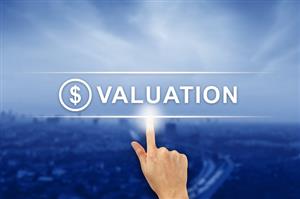
Buying a business is a big investment. Though it may be the culmination of a lifelong dream, there's always a chance that dream could turn into a nightmare. From poor profitability to hidden problems with assets, knowing what you're getting into before you buy is always a good deal. Here's a quick look at how a company appraisal can be a big help during the process.
Why is a company appraisal helpful when buying a business?
As you look at a company you're thinking about buying, what kind of information do you need? Finances, reputation, market share: all these areas tie together into a picture of the company's overall value. But how is that value determined? Most of the time, the business is worth significantly more than just the sum of its assets once liabilities are handled.
A company appraisal provides you with a great deal of information to help you decide whether it's a good investment or not. The appraiser starts by taking a solid look at the company's financial records. They can determine what the expected future income of the company will probably be, based on its financial history.
But what if your company is in an industry that has really taken off recently and the owner wants to take advantage of that potential in the sale price? A business valuation takes a deep look at where the market currently stands and where it's projected to go in the future. That helps you to decide whether the investment is a good risk or not.
What about the company's reputation in the market or community? If the brand is well known for high quality products or services, you can benefit from that reputation and community goodwill when you buy the company. This may allow you to see better returns with less overall work in a shorter period of time.
Is the company known for its unique approach to innovation and development of state of the art products? This is another area where a business appraisal specialist can look at what the company has done in the past, what their market share is and what you may be able to expect from that advantage well into the future.
Are there areas for improvement? Many businesses operate at less than peak efficiency for the majority of the time. If there is room for improvement, you can quickly turn a mediocre level of profitability into a truly outstanding one. The appraisal report will include some information on where improvements could be made.
How well does it hold up when compared to its competitors? Part of the business appraisal process involves looking at the industry or regional market, depending on the type of business you're getting into. When it comes to business value, there are a wide range of factors that can make the business you're considering buying better or worse than others, depending on location, well-known employees or other factors.
When you take the time to investigate the company you're purchasing carefully, you'll quickly find that the benefits well outweigh the costs. A company appraisal performed by a certified valuation specialist helps ensure you're making a wise investment instead of throwing good money after bad. By finding an appraiser with experience in your industry, you're sure to make a great start when buying a business.

